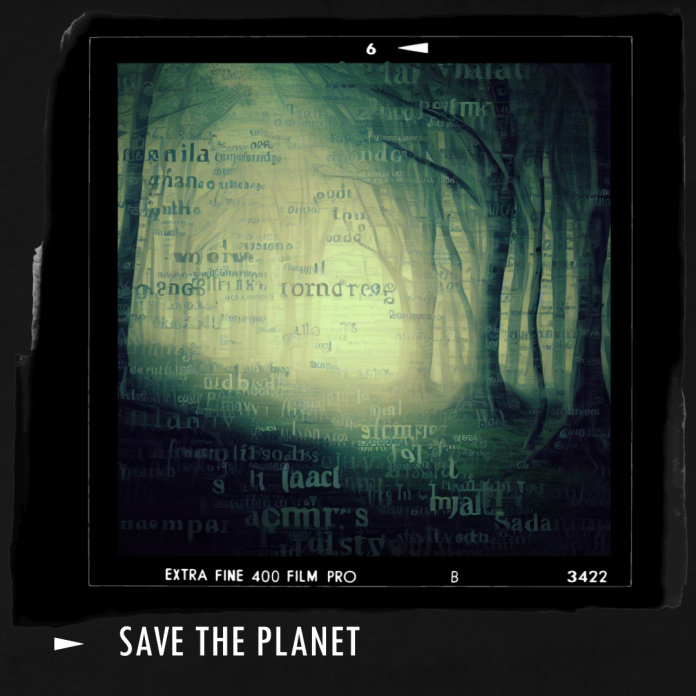Môi trường là một chủ đề thường được thảo luận trong các bài luận IELTS. Nếu bạn đọc nội dung bên dưới còn khó khăn, bạn nên học 7000 từ vựng cốt lõi, 970 collocations trước nhé. Dưới đây là 9 từ mà bạn có thể bắt gặp khi viết về môi trường.
| Word | Pronunciation | Word Family | Synonym | Explanation | Example |
| Pollute | /pəˈluːt/ | pollute, pollution, pollutant | contaminate, defile | To make the environment dirty or unclean. | “The factory’s emissions are polluting the air.” |
| Conserve | /kənˈsɜːv/ | conservation, conservative | preserve, protect | To protect or save something from being damaged or destroyed. | “We need to conserve our natural resources.” |
| Sustainable | /səˈsteɪnəbl/ | sustainability | sustainable development | Able to be used without causing damage to the environment. | “We need to find sustainable ways to produce energy.” |
| Recycling | /riːˈsaɪkliːɪŋ/ | recycle, recyclable | reuse | To process waste materials into new materials. | “We should all recycle our paper, plastic, and metal.” |
| Reduce | /rɪˈdjuːs/ | reduction | fewer, less | To make something smaller or less in amount. | “We can reduce our impact on the environment by reducing our consumption of goods and services.” |
| Reuse | /riːˈjuːz/ | reusable | used again | To use something again for its intended purpose. | “We can reuse our shopping bags instead of buying new ones.” |
| Compost | /ˈkɒmpɒst/ | compostable | manure, fertilizer | To convert organic matter into a nutrient-rich soil amendment. | “We can compost our food scraps and yard waste to reduce our waste output.” |
| Offset | /ˈɒfset/ | offset, offsetting | compensate | To balance out or make up for something. | “We can offset our carbon emissions by planting trees.” |
| Adapt | /əˈdæpt/ | adaptation | adaptable | To change or adjust to a new environment. | “We need to adapt our lifestyles to the changing climate.” |
Phân tích 9 câu ví dụ dùng trong IELTS Writing
- The factory’s emissions are polluting the air.
Sentence Pattern: Simple sentence
Subject: The factory’s emissions
Verb: are polluting
Object: the air
Word Choices: The word “polluting” is a strong word that conveys the negative impact that the factory’s emissions are having on the air.
Word Forms: The verb “pollute” is in the present tense, which indicates that the factory’s emissions are currently polluting the air.
2. We need to conserve our natural resources.
Sentence Pattern: Imperative sentence
Subject: We
Verb: need to conserve
Object: our natural resources
Word Choices: The word “natural” emphasizes the importance of protecting the environment.
Word Forms: The verb “conserve” is in the infinitive form, which indicates that it is necessary to conserve our natural resources.
3. The company is committed to sustainable business practices.
Sentence Pattern: Simple sentence
Subject: The company
Verb: is committed to
Object: sustainable business practices
Word Choices: The word “sustainable” refers to business practices that can be maintained over a long period of time without causing environmental damage.
Word Forms: The verb “is committed to” is in the present tense, which indicates that the company is currently committed to sustainable business practices.
4. The city has a recycling program that helps to reduce waste.
Sentence Pattern: Simple sentence
Subject: The city
Verb: has
Object: a recycling program
Adverb: that helps to reduce waste
Word Choices: The word “recycling” refers to the process of converting waste materials into new materials.
Word Forms: The verb “has” is in the present tense, which indicates that the city currently has a recycling program.
5. We can reduce our carbon footprint by driving less.
Sentence Pattern: Simple sentence
Subject: We
Verb: can reduce
Object: our carbon footprint
Adverb: by driving less
Word Choices: The word “carbon footprint” refers to the amount of carbon dioxide and other greenhouse gases that are emitted into the atmosphere as a result of human activity.
Word Forms: The verb “can reduce” is in the present tense, which indicates that we are currently able to reduce our carbon footprint by driving less.
6. You can reuse plastic bags by taking them to the grocery store.
Sentence Pattern: Imperative sentence
Subject: You
Verb: can reuse
Object: plastic bags
Adverb: by taking them to the grocery store
Word Choices: The word “reuse” means to use something again for its intended purpose.
Word Forms: The verb “can reuse” is in the infinitive form, which indicates that it is possible to reuse plastic bags.
7. You can compost your food scraps to help reduce waste and improve your soil quality.
Sentence Pattern: Simple sentence
Subject: You
Verb: can compost
Object: your food scraps
Adverb: to help reduce waste and improve your soil quality
Word Choices: The word “compost” means to convert organic matter into a nutrient-rich soil amendment.
Word Forms: The verb “can compost” is in the infinitive form, which indicates that it is possible to compost food scraps.
8. You can offset your carbon emissions by planting trees.
Sentence Pattern: Simple sentence
Subject: You
Verb: can offset
Object: your carbon emissions
Adverb: by planting trees
Word Choices: The word “offset” means to balance out or make up for something.
Word Forms: The verb “can offset” is in the infinitive form, which indicates that it is possible to offset carbon emissions by planting trees.
9. We need to adapt our lifestyles to the changing climate.
Sentence Pattern: Imperative sentence
Subject: We
Verb: need to adapt
Object: our lifestyles
Adverb: to the changing climate
Word Choices: The word “adapt” means to change or adjust to something.
Word Forms: The verb “need to adapt” is in the infinitive form, which indicates that it is necessary to adapt our lifestyles to the changing climate.
Tại Từ Vựng Cốt Lõi, ngoài từ vựng, bạn còn có thể học luyện viết IELTS từ hơn 100 bài IELTS song ngữ band 9.















